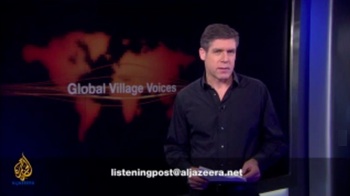Australian airline Jetstar and the managers of rock band Powderfinger seem to think that waving the magic word “social media” means free labour. Exploitative cunts.
Jetstar is continuing its drive into social media, funding an official blogger on Powderfinger’s farewell tour which is sponsored by the budget airline.
According to Jetstar: “Over 50 days, Jetstar’s official tour blogger will ‘Follow the Finger’ and produce daily blogs, video diaries, fan photos and Twitter updates. They will interview the band and support acts, interact with fans and locals and become a member of the tour support team.”
As well as covering travel and accommodation, the blogger will receive an allowance of $100 a day.
Right.
So in other words, for more than a month and a half, the “winner” of the “competition” will work as a writer covering the tour — call it journalism or blogging or whatever you like, it’s all the same thing. They’ll work as a producer, curating fan photos. They work as a PR assistant and “interact with fans and locals and become a member of the tour support team”. That’s a whole bunch of different media skills, a pretty special person indeed.
In return they get paid less than the legislated minimum wage.
The federal minimum wage is currently $15.00 per hour or $569.90 per 38 hour week (before tax).
Casual employees covered by the national minimum wage also get at least a 21 per cent casual loading.
I reckon “become a member of the tour support team” sounds like an offer of employment, yeah?
“Jetstar has been making a growing investment in social media,” says mUmBRELLA, but clearly not enough to pay a fair day’s wage for a fair day’s work.
Maybe Jetstar should try telling the roadies they’ll also get $100 a day “allowance” in return for the privilege of seeing all 34 concerts. To their faces. And I’ll sit back and watch…
Please insert a final angry sentence that includes the words “exploitation”, “unethical” and “pond slime”. And on Monday I’ll be phoning Fair Work Australia for an opinion.
Rock on.
Unless, of course, Jetstar get in touch before then to tell me they’ve decided to pay the winner the proper MEAA rate for freelance writers [PDF].


